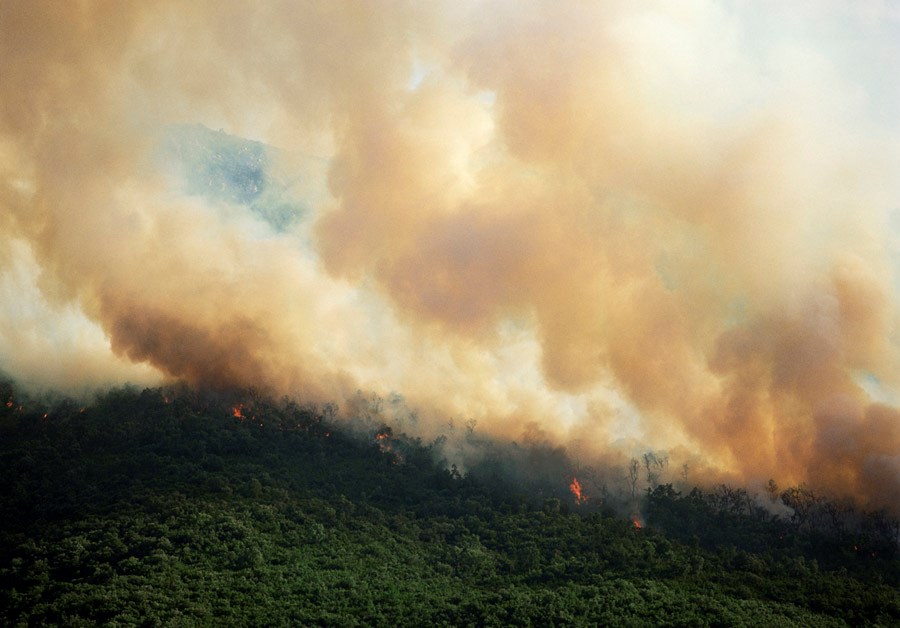Northern Health warns that as smoke concentrations vary widely in the regions, they remain concentrated in some areas and everyone should take precautions to avoid unnecessary exposure and adverse health effects.
Avoid strenuous outdoor activities. If you are experiencing any of the following symptoms, contact your health care provider: difficulty in breathing, chest pain or discomfort, and sudden onset of cough or irritation of airways. Exposure is particularly a concern for infants, the elderly and those who have underlying medical conditions such as diabetes, and lung or heart disease.
Visitors and staff to hospital in Quesnel or Prince George may notice the smell of smoke inside the facility. Facilities maintenance staff have put in place measures to improve the quality of the air and significantly reduce any particulate matter circulating in indoor air within NH facilities. However, although the indoor air is considerably safer than the outdoor air, these measures will not remove the smoky smell.
Facilities maintenance staff will continue to monitor the situation and additional communication will occur as more information becomes available.
Tips to reduce your personal health risk:
People with heart or lung conditions may be more sensitive to the effects of smoke and should watch for any change in symptoms that may be due to smoke exposure. If any symptoms are noted, affected individuals should take steps to reduce their exposure to smoke and if necessary see their physician. People with symptoms should go to their health care provider, walk-in clinic or emergency department, depending on severity of symptoms.
Use common sense regarding outdoor physical activity - if your breathing becomes difficult or uncomfortable, stop or reduce the activity.
Stay cool and drink plenty of fluids.
Smoke levels may be lower indoors; however, if it’s smoky outside, indoor levels of smoke particles will still be higher than usual. If you stay indoors, continue to be aware of your symptoms.
Consider visiting a location like a shopping mall with cooler filtered air. Keep in mind that staying indoors may help you stay cool and provide some relief from the smoke; however, many air conditioning systems do not filter the air or improve indoor air quality.
Reduce indoor pollution sources such as smoking or burning other materials.
You may be able to reduce your exposure to smoke by moving to cleaner air. Conditions can vary dramatically by area and elevation.
Residents with asthma or other chronic illness should activate their personal care plan for asthma or other chronic illnesses.
Have rescue medication on hand at all times and a plan to follow if your rescue medication cannot bring your condition under control.
Pay attention to local air quality reports: air quality may be poor even though smoke may not be visible.
Running a commercially available HEPA (high efficiency particulate air) filter can further improve indoor air quality near the filter.
Maintaining good overall health is a good way to prevent negative health effects resulting from short-term exposure to air pollution.
For general information about smoke and your health, contact HealthLink BC available toll-free, 24 hours a day, 7 days a week at 8-1-1, or via the web at: http://www.healthlinkbc.ca/kbaltindex.asp.
Real-time air quality information in B.C. is available at http://www2.gov.bc.ca/gov/content/environment/air-land-water/air/air-quality/current-air-quality-data
Visit http://www.interiorhealth.ca , click on the Your Environment tab at the top of the page, then Emergency Information - Forest Fire, and under the “During” tab, scroll to Your health and living with smoky skies.
Food safety and water quality tips:
During a forest fire, it’s also important to be aware of health risks associated with food safety in power outages and water quality.
Interior Health’s website contains helpful information and other resources related to forest fire smoke exposure / air quality, as well as food safety when the power is out and ensuring your drinking water is safe: http://www.interiorhealth.ca.
Media Contacts:
For media and public questions regarding air quality: Donna Haga, Air Quality Meteorologist, Ministry of Environment & Climate Change Strategy, 250-489-8541.



